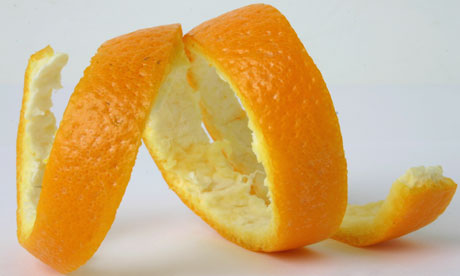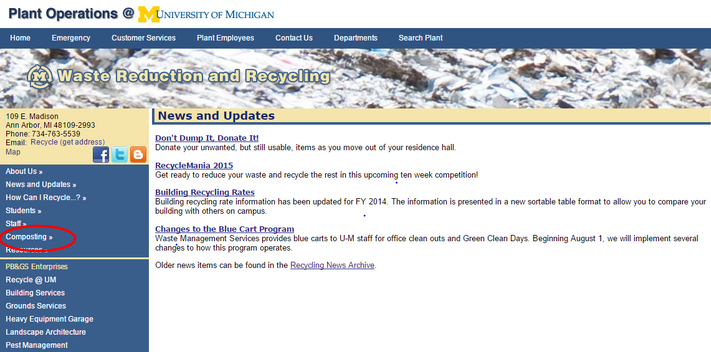First off...what is composting?
Let's make sure we all have a basic understanding of what composting is before we discuss how it can be implemented. Composting is a purposefully managed natural process, during which organic materials (i.e. food waste, yard waste, plants, etc.) decompose into a nutrient-rich substance known as "compost," which is effectively used as a soil in local gardens and farms. So, your banana peel isn't "compost," but rather food waste that, if disposed of properly, can be turned into compost.
Quick note: Composting is distinctly different from decomposition and
biodegradation. For an item to be compostable, it must break down within 180
days. For an item to be biodegradable, it simply must break down "over a period of
time," and an item only decomposes if it is organic and not purposefully managed.
Another important distinction to note is between pre- and post-consumer waste.

Pre-consumer waste: Material that is discarded before it is ready for consumer use. For example, if a restaurant prepares a fruit salad with an orange in it, the orange peel would be an example of pre-consumer waste.
Post-consumer waste: Material that is discarded after it has been given to the consumer. For example, if you go to Sava's and don't finish your meal (an act which I don't personally see as a possibility at Sava's) the remainder of your meal is compostable, post-consumer waste.
Are we composting at U of M?
Of course! We've been composting pre-consumer food waste since 1997. Plant Building & Grounds Services composts all yard waste generated by the University and uses this compost in flower beds across campus. Campus-generated food waste is taken to WeCare Organics, is converted into compost there, then the compost is sold to local farmers and homeowners as a nutrient-rich soil.
A number of buildings on campus are running a compost program. These include...
Dining Halls: We have pre-consumer composting at all dining halls, the Union, the League, Pierpont Commons, Palmer Commons, and Mujo Cafe. Post-consumer composting is being practiced at East Quad, South Quad, North Quad, and Bursley. This means that when you have a meal at East Quad with friends, your food scraps are composted! Michigan Dining is also working toward post-consumer composting at the rest of their locations!
Stephen M. Ross School of Business: Ross has compost bins directly next to the recycling bins for you to put your food waste in. Ross sends its food waste to a composting facility separate from the University's contract with WeCare Organics.
Zero Waste Events:
Student Group Events: Are you in a student group? The Student Sustainability
Initiative (SSI) provides compostable dining materials (plates,
silverware, and cups) for student groups through their Zero Waste Program. There
are compost bins at the Union and the Electrical Engineering
and Computer Science (EECS) building on North Campus for student groups to drop
off their compostable waste in.
Sporting Events: A number of Athletics Department events are now Zero
Waste, including wrestling, field hockey, and baseball.
Development Events is planning to
make Spring Commencement 2015 at the Big House a Zero Waste Event for the
fourth year in a row.
The Dana Building: There is a compost bin in the first floor kitchen of Dana for activities occurring in the building, including the use of the kitchen by students and faculty, as well as any events held at Dana. If you would like to use the compost bin, please contact DanaCompostCrew@umich.edu. You will need to go through a brief, 15-minute training to receive a key for access to the bin. The training is a necessary aspect of the program as it prevents contamination of the composted waste.
The Dana Compost Program is unique in that it was implemented by not only Dana's Facilities Manager, Sucila Fernandes, but by a group of School of Natural Resources and Environment (SNRE) students including Benjamin Kunstman, Sophie Chen, Montana Stevenson, Gabriel Jones, and Michael Burbidge. The group worked to put together a timeline for the project, conduct a student interest survey, and present a proposal to the Dean of SNRE, Marie Lynn Miranda. Dean Miranda encouraged the team to perform a waste sort, in order to assess whether a composting program would significantly reduce Dana's waste stream. The group performed the waste audit with the help of other SNRE and Program in the Environment (PitE) students and found that, on average, over 40% of Dana's waste stream was compostable by weight. These results showed that a composting program would have the potential to significantly reduce Dana's waste stream, and the program received approval from Michael Moore, an Associate Dean and Professor at SNRE. The program has been running since January 2015 and roughly 45 people have been trained to use the compost bin. Plant Building & Grounds Services, another essential component of the implementation of this program, makes sure the composted waste is transported from the Dana Building to the WeCare Organics Compost Center. The Dana Compost Crew (DanaCompostCrew@umich.edu) would be a great resource to anyone interested in implementing a compost program at another campus building!

Where does the food waste go after it leaves campus?
Food waste that is composted on campus is sent to the WeCare Organics Ann Arbor Compost Center at 4150 Platt Road in Ann Arbor. U-M Plant Operations collects this food waste from the various sites across campus, and dumps it at the WeCare Compost Center. From there it is formed into long piles called windrows, as seen in the above photo, and begins to aerobically compost. Compost from this site is then sold to local farmers, landscapers and homeowners.
Questions? Go to U-M Waste Reduction and Recycling Office's website and click on "Composting" on the left hand tab (see below!), or email recycle@umich.edu.





No comments:
Post a Comment